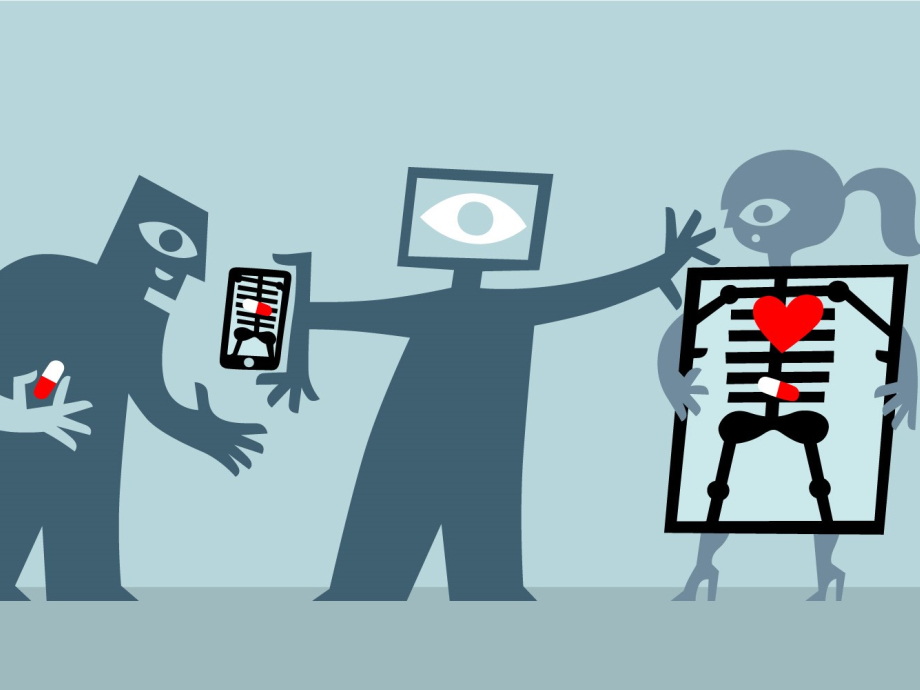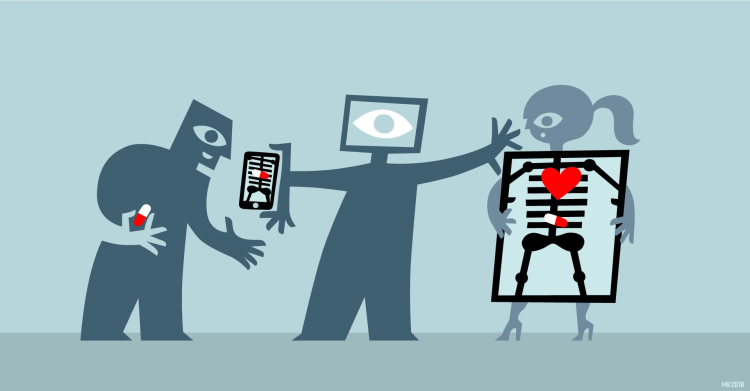Computer scientist TU Delft: Engineers, see that we can share the right data
Technology should reflect the norms and values of its users. Today’s technology isn’t flexible enough, however. We must learn to develop tailor-made, context-sensitive technology.

By M. Birna van Riemsdijk, Assistant Professor of Intimate Computing at Delft University of Technology.
Reading time: 2-3 minutes
Be sure to read the other articles in the Decent Digitisation series.
‘Germany bans children's “smart” watches over surveillance concerns.’ ‘First Digital Pill Approved Leads to Worries About Biomedical “Big Brother”.’ These two recent newspaper articles give examples of how digital technology is getting under our skin – both figuratively and literally.
Intimate technology of this kind allows us to collect and share personal and intimate data in all sorts of ways. That can be very useful, for example a ‘digital pill’ that reminds patients to take their medication. But intimate technology can also infringe our privacy, or diminish our sense of responsibility, when we share it with others because someone is always monitoring our behaviour and ready to intervene.
What does ethical programming mean for personal and intimate technology?
We must learn to develop tailor-made, context-sensitive technology. Today's technology is often designed to share all of the user’s data. For example, digital pills share all the data showing the date and time of ingestion with the patient’s doctor. Patients can withdraw their consent at any time, but they then share no data whatsoever. It’s all or nothing.
I believe that there’s another solution: a happy medium of flexible technology.

Design flexible software
Let’s take the digital pill as an example. A patient who only occasionally forgets to take his medication doesn’t need to share all his data with his doctor or family members. All he needs is for the technology to alert him directly. But there are some patients who constantly forget. In their case, data-sharing is important to give them the help that they need. The situation differs from one person to the next – and the technology should adapt accordingly.
Get engineers to work with philosophers
The first step in developing this new type of personal and intimate technology is to redefine how we view technology: it’s not there merely to collect and share data but should also help us do so responsibly. We can redefine that view by getting engineers to work with philosophers, for example in research teams.
These teams can apply the theory of technological mediation, which advises us to reframe the human-machine interface in terms of freedom rather than autonomy. Technology influences our behaviour and that means that our actions are never entirely autonomous, but we can exercise our freedom by being conscious of how we are using technology. Personal and intimate technology should support users in that respect.
We need software that knows what patients can do themselves
To ensure that technology provides this support, we need software models that allow users to agree on data-sharing protocols. For example, a patient and her family can agree that she takes her medication every day at 6 p.m. and that if she doesn’t, the software will alert her family.
What if it’s 6.01 p.m. and the patient hasn’t taken her medication yet?
The software must also be capable of interpreting the agreements properly. What if it’s 6.01 p.m. and the patient hasn’t taken her medication yet? Should it alert the family immediately? Should it wait another 30 minutes? The right response depends on the situation.
Technology is not value-free
It should be up to users to decide how to share their data with others. This is critical. Technology is never value-free and all too often it lumps everyone into the same category. In the end, the point is to make our own, individual choices: how can technology support me in my chosen lifestyle? And in the way that I wish to share my life with others? Sharing personal data should no longer be a question of all or nothing, in other words. It’s time for the happy medium.
By M. Birna van Riemsdijk, Assistant Professor of Intimate Computing at Delft University of Technology.
Read more
Be sure to read the other articles in the Decent Digitisation series, and the related reports:
- Human Rights in the Robot Age. Challenges arising from the use of robotics, artificial intelligence, and virtual and augmented reality
- A fair share. Safeguarding public interests in the sharing and gig economy
- A never-ending race. On cyberthreats and strengthening resilience
- Urgent upgrade. Protect public values in our digitized society